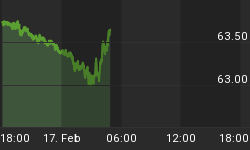The notion of a "coming oil shortage" has been around for decades. I remember the lines at the gas pumps in 1973-74 all too clearly, because I had just gotten my driver's license. The economic wise men of the time made dire predictions. If they had been right, the world's oil supply would have been long gone by now.
Still, the notion persists as strongly as ever in some quarters. A professor at Princeton published a book in 2002 with "Impending World Oil Shortage" in the title, which was favorably reviewed in all the right places. The price fluctuations over the past year have only fed the beast.
Now, I could give you my opinion of all this, but it's probably better to stick with the facts, to wit: There is no shortage of oil. There will be no shortage of oil. Not now, not next year, not in 50 or 100 years.
"Oil, Oil, Everywhere..." was the title of a fact-filled essay is a recent issue of The Wall Street Journal, which showed how absurd the "oil shortage" fears truly are:
"To pick just one example among many, finding costs are essentially zero for the 3.5 trillion barrels of oil that soak the clay in the Orinoco basin in Venezuela, and the Athabasca tar sands in Alberta, Canada. Yes, that's trillion -- over a century's worth of global supply, at the current 30-billion-barrel-a-year rate of consumption."
Mind you, those are merely two oil fields in Venezuela and Canada, comparative little leaguers vs. the major league oil fields in the Persian Gulf region. In a speech this past October, Alan Greenspan noted that, "During the past decade... gross additions to [world] reserves have significantly exceeded the extraction of oil the reserves replaced."
So: Shortages have nothing to do with oil prices because there is no shortage. In truth, when it comes to the price of a barrel of oil in today's market, there is virtually no evidence that supply & demand has anything to do with it. Total world supply and demand have grown at the same constant pace since the mid-1980s. And by definition, two constant factors cannot account for wide fluctuations in the outcome (namely price) of an exchange.
The explanation lies elsewhere.
Prices in a freely traded market are always a function of what the seller asks and what the buyer bids. Innumerable factors will affect the psychology of the buyer and seller -- yet when their minds meet, you get a price. And make no mistake: that meeting of those minds is, above all, psychological.
Psychology is more important than supply and demand. This stands the conventional wisdom about markets on its head, but then again -- doesn't conventional wisdom usually turn out to be upside-down anyway?
















